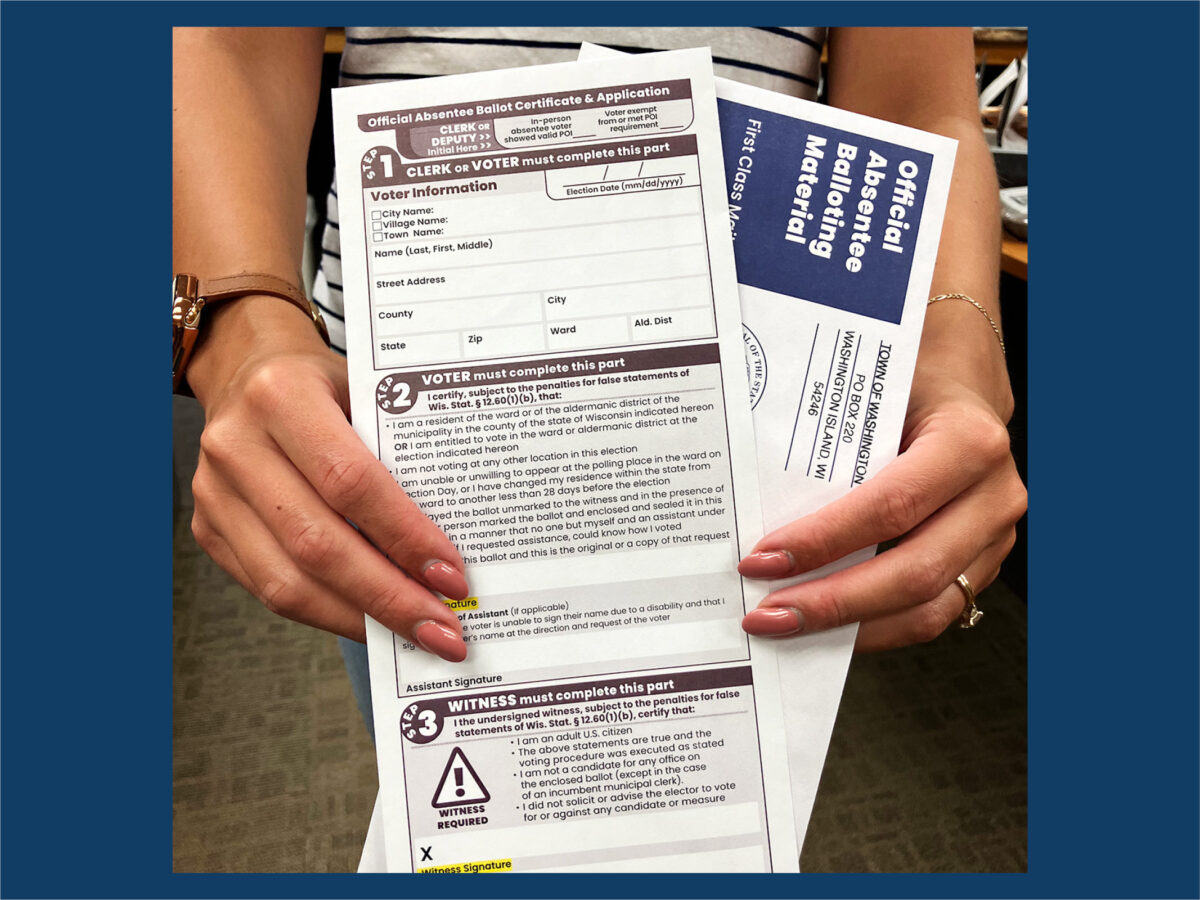Early voting in Wisconsin began Oct. 22 and runs through Nov. 3. If one has not voted early by mail or in-person at their local clerk’s office, Nov. 5 is the big day. Voters around the country will head to the polls to cast their vote in national and regional races.
On their ballots, Door County voters will see four contested races, four uncontested ones, and a constitutional amendment question. Voters in the Sevastopol school district and the Washington Island school district will also be asked to consider school referendums.
Sevastopol is asking voters to exceed the revenue limit, in a non-recurring referendum for the next four years in the amounts of $4.25, $4.5, $4.75 and $4.75 million respectively. Washington Island School District is asking voters to permanently increase the district’s funding with a recurring operational referendum. This referendum would increase the district’s limit by $995,000 annually.
Besides the U.S. presidential elections, Wisconsin will choose a senator to represent the state in Washington. Incumbent Democrat Sen. Tammy Baldwin faces Republican Eric Hovde and third party candidates Phil Anderson (Disrupt The Corruption) and Thomas Leager (America First).
As far as the 8th Congressional District representative who will head to Washington, that race appears on the ballot twice. Former Rep. Mike Gallagher resigned early from his term ending January 3, 2025, and this means voters need to choose a candidate to fulfill that term and the next. The new term begins Jan. 3, 2025, and goes until Jan. 3, 2027.
Relative political newcomers, Democrat Dr. Kristin Lyerly and Republican Tony Wied are vying for Gallagher’s open seat for both terms.
The race for 1st District representative to the state assembly in Madison is between incumbent Republican state Rep. Joel Kitchens and challenger Renee Paplham, a Democrat.
Door County candidates for district attorney, clerk, treasurer and register of deeds are all incumbents running unopposed.
Finally, Door County voters will be asked to weigh in on the fifth constitutional amendment referendum for Wisconsin this year.
In April, voters approved amending the state’s constitution to ban private funding of state elections, and limiting who can administer elections. In the August primary, two amendments proposing the legislature be allowed to decide how to spend certain federal funding were rejected by voters.
Titled the “State of Wisconsin Eligibility to Vote Referendum,” the current ballot measure seeks to change constitutional language regarding age and citizenship status required to vote. The question reads as follows: “Eligibility to vote. Shall section 1 of article III of the constitution, which deals with suffrage, be amended to provide that only a United States citizen age 18 or older who resides in an election district may vote in an election for national, state, or local office or at a statewide or local referendum?”
Wisconsin’s constitution already states: “Every United States citizen age 18 or older who is a resident of an election district in this state is a qualified elector of that district.”
If the amendment passes, the word “every” will be replaced by “only” and include a specific list of types of elections. Proponents of the GOP-driven ballot measure include state GOP legislators—no Democratic state legislators voted in favor of the measure—and the conservative group Wisconsin Family Action. Several organizations are opposed to the measure, including the American Civil Liberties Union and the League of Women Voters.
If the Wisconsin constitution already prohibits noncitizen voting, and there is a federal law prohibiting all noncitizens from voting in federal elections, why are Republican lawmakers pursuing this change?
There are some municipalities in states like California, New York, Maryland and Vermont, that allow legal permanent residents, or green-card holders, to vote in local elections. According to David Helpap, a political science professor at the University of Wisconsin – Green Bay, proponents of the amendment say that it will prevent this from happening in Wisconsin. Currently, no Wisconsin municipalities allow non-citizen voting.
How hard it is to allow legal non-citizens like green-card holders to vote in local elections depends on the state, according to Helpap. Wisconsin has a history of allowing non-citizens who were in the process of naturalizing to vote in local elections, though it is no longer permitted anywhere in the state now. Leaders at one time thought it was a reasonable way to get folks involved, Helpap explained, during times of high immigration to the U.S.
But a municipality allowing it to happen now would not be easy even without the amendment, according to Helpap, and there would almost certainly be litigation that would go to the state supreme court if a municipality tried.
Opponents of the amendment say it is unnecessary and divisive. “Wisconsin already has safe and secure elections and safeguards in place to ensure only eligible voters are voting. This amendment uses fear as a tactic to further divide us,” the League of Women Voters states on their website.

